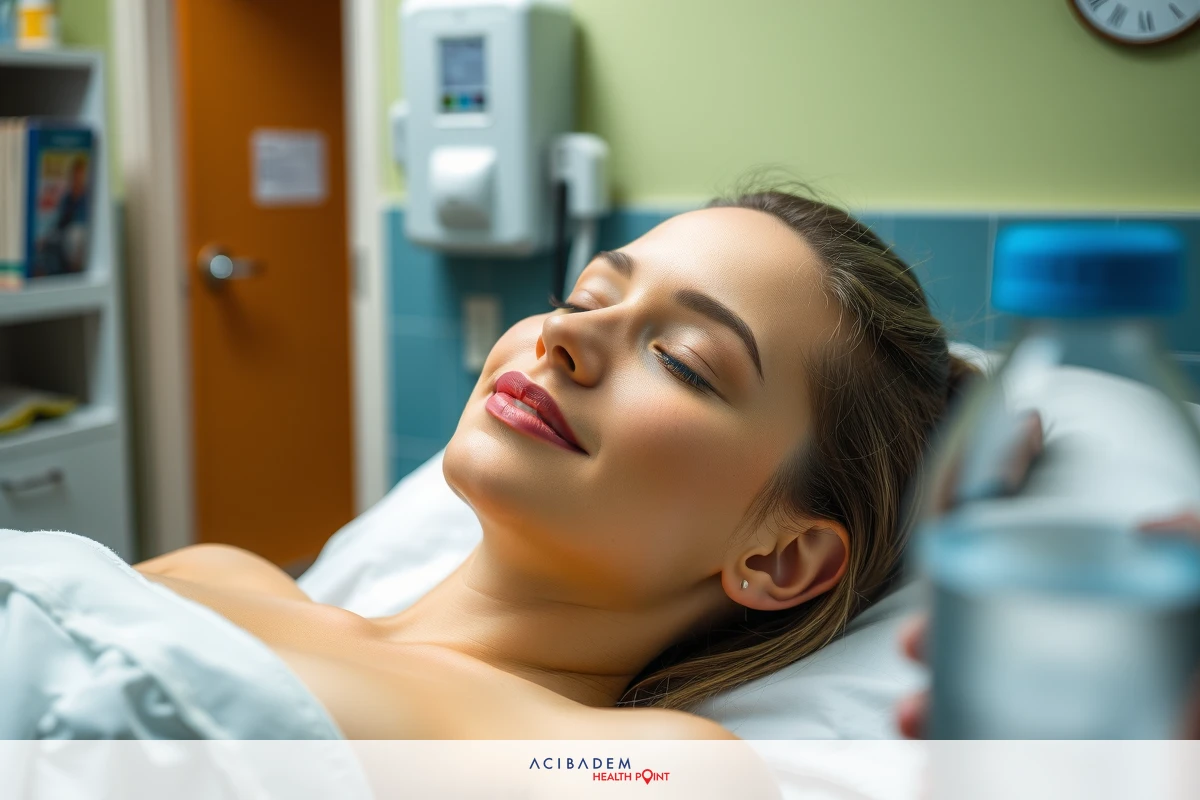How to Recover Fast from Rhinoplasty
How to Recover Fast from Rhinoplasty Rhinoplasty, often denoted as nose reshaping surgery, is a widely accepted plastic surgery option known for its ability to improve both the function and appearance of the nose. A key concern for many patients is how they can quickly return to their regular routines while ensuring optimal results from their surgery. This article offers practical advice on how you can enhance your recovery speed following rhinoplasty.
What to expect during the recovery process and making appropriate preparations before your surgery are crucial steps towards a successful outcome. Furthermore, adhering to post-operative care instructions can help minimize discomfort and expedite healing. Lastly, adopting certain lifestyle habits can promote faster recovery and enhance the overall healing process. With these insights, you will be better equipped to navigate your recovery journey after rhinoplasty.
Preparation for Rhinoplasty
The preparation phase for rhinoplasty surgery is as crucial as the surgery itself in achieving a speedy recovery. It’s in this stage that you establish the groundwork for how your body will handle the post-surgery healing process. You can set yourself up for quick healing and a fast recovery by preparing both physically and mentally for the surgery.
Physical preparation involves maintaining good overall health. Regular exercise, balanced diet, and ample rest are key. You should avoid alcohol and smoking as these can interfere with the body’s natural healing process. Certain medications like aspirin or ibuprofen may also need to be avoided because they can increase bleeding. It’s important to discuss with your surgeon about any medications you’re currently taking.
Mental preparation is equally important as it sets your mindset for recovery. Familiarizing yourself with the rhinoplasty procedure, its potential risks, and expected outcomes can help reduce anxiety and stress related to surgery. Knowing what to expect during and after surgery can make you feel more relaxed and prepared, thus aiding in a smoother and faster recovery.
Another aspect of preparation is your living environment. Make sure your home is clean, comfortable, and well-equipped with all the necessities you’ll need during recovery. This includes easy-to-prepare meals, plenty of water, comfortable pillows for elevation, and entertainment options to keep you occupied while you recover.
Lastly, arranging for a friend or family member to drive you home after the surgery and stay with you for at least the first night can be extremely helpful. They can assist you with tasks that might be difficult immediately after surgery, thereby reducing strain on your body and promoting quick healing. Remember, the goal of preoperative preparation is to create an optimal environment for recuperation that will support a fast recovery from rhinoplasty.
Post-Operative Care
Following rhinoplasty, the journey to speedy recovery begins. Effective post-operative care is crucial to ensure quick healing and minimize discomfort during your recovery period. This involves following specific instructions from your surgeon, taking prescribed medications, and adopting a few self-care practices.
Here are some essential post-operative care tips that can help you recover fast from rhinoplasty:
- Follow Your Surgeon’s Instructions: These will include guidelines on how to clean the surgery area, when to change bandages, and signs of complications to watch out for.

The image is a candid, full-length portrait of a woman lying on her back in a hospital bed. She appears to be relaxed and is smiling gently at the viewer with her eyes closed. Her hair is styled in loose waves. The room has a sterile, clinical ambiance with light colors and medical equipment visible in the background. A bottle of water is held by someone out of frame, implying care or visitation. - Take Prescribed Medication: This not only helps manage discomfort but also aids in quick healing by reducing inflammation and preventing infection.
- Rest & Elevate Your Head: Getting plenty of rest and sleeping with your head elevated can reduce swelling and speed up your recovery.
- Avoid Strenuous Activities: Heavy lifting or vigorous exercise should be avoided as they can exacerbate swelling and prolong the healing process.
- Stay Hydrated & Eat Nutritious Food: Proper hydration and nutrition are key to quick healing as they provide the body with necessary resources for repair.
- Avoid Alcohol & Smoking: Both can interfere with wound healing and slow down your recovery process.
- Attend Follow-Up Appointments: These appointments allow your surgeon to monitor your progress and address any potential issues early on.
8. Be Patient with Your Recovery: Understand that healing takes time and rushing it can lead to complications. Follow your surgeon’s advice to ensure a smooth recovery.
By adhering strictly to these post-operative care instructions, you position yourself for a fast recovery with minimal discomfort after rhinoplasty. Remember, your actions during this phase significantly impact your overall outcome.
How to Recover Fast from Rhinoplasty: Healthy Lifestyle Habits
It’s no secret that adopting healthy lifestyle habits plays a crucial role in healing and recovery post-rhinoplasty. These practices not only promote speedy recovery but also enhance the overall healing process, ensuring that you get back to your normal routine as quickly as possible.
A balanced diet is one of the keys to quick healing. Consuming foods rich in vitamins and proteins can speed up the healing process as they provide essential nutrients needed for tissue repair and regeneration. Hydration is equally important because it aids in flushing out toxins from your body, promoting faster healing. It’s advisable to avoid processed foods, excessive sugar, and alcohol as they could interfere with your body’s natural recovery process.
Regular light exercise is another healthy habit that can aid in speedy recovery. While strenuous activities should be avoided, light exercises such as walking can improve circulation, which in turn supports the healing process. Always remember to consult with your surgeon before resuming or starting any exercise regimen post-surgery.
Getting enough rest is also vital for fast recovery from rhinoplasty. Your body heals and regenerates tissues while you sleep, so ensuring you get ample rest is key for quick healing. Try to create a peaceful and comfortable sleeping environment and consider using extra pillows to keep your head elevated, which can help reduce swelling.
Maintaining a positive attitude and managing stress effectively can significantly contribute to a smoother recovery journey. Engage in relaxation techniques such as deep breathing or meditation, listen to your favorite music, or read a good book. These activities not only keep your spirits high but also help you cope with post-operative discomfort better.
In essence, adopting these healthy lifestyle habits can significantly support your recovery process after rhinoplasty surgery. Remember, taking care of your body by nourishing it properly, staying active within safe limits, getting sufficient rest, and
keeping a positive mindset are fundamental steps towards achieving a speedy recovery.
Frequently Asked Questions
How long does it take to recover from rhinoplasty?
The recovery time can vary from person to person, but generally, it takes about 1-2 weeks for the initial swelling and bruising to subside. However, it may take several months for the full results to become apparent as the tissues continue to heal and settle.
Will I experience any pain or discomfort after rhinoplasty?
It is common to experience some degree of pain, discomfort, or tightness in the nose area following rhinoplasty. Your surgeon will prescribe pain medication to manage any discomfort during the initial recovery period.
Can I wear glasses or sunglasses after rhinoplasty?
It is best to avoid wearing glasses or sunglasses that rest on the bridge of your nose for a few weeks after surgery. This is to prevent any pressure or movement that may affect the healing process. Your surgeon may recommend alternative methods such as taping the glasses to your forehead or using contact lenses during this time.
When can I resume my regular activities and exercise routine?
It is important to avoid strenuous activities and exercise for at least 3-4 weeks after rhinoplasty. Engaging in such activities too soon can increase swelling and potentially disrupt the healing process. It is essential to consult with your surgeon regarding the appropriate time frame for resuming specific activities.
Will there be visible scarring after rhinoplasty?
In most cases, incisions for rhinoplasty are made inside the nose (closed rhinoplasty), resulting in no visible external scarring. However, if an open rhinoplasty technique is used, a small incision may be made on the columella (the strip of tissue separating the nostrils). This incision typically heals well and is discreet, becoming less noticeable over time.
These are just a few common questions related to rhinoplasty recovery. It is important to have open communication with your surgeon and address any specific concerns or queries you may have throughout the recovery process.











